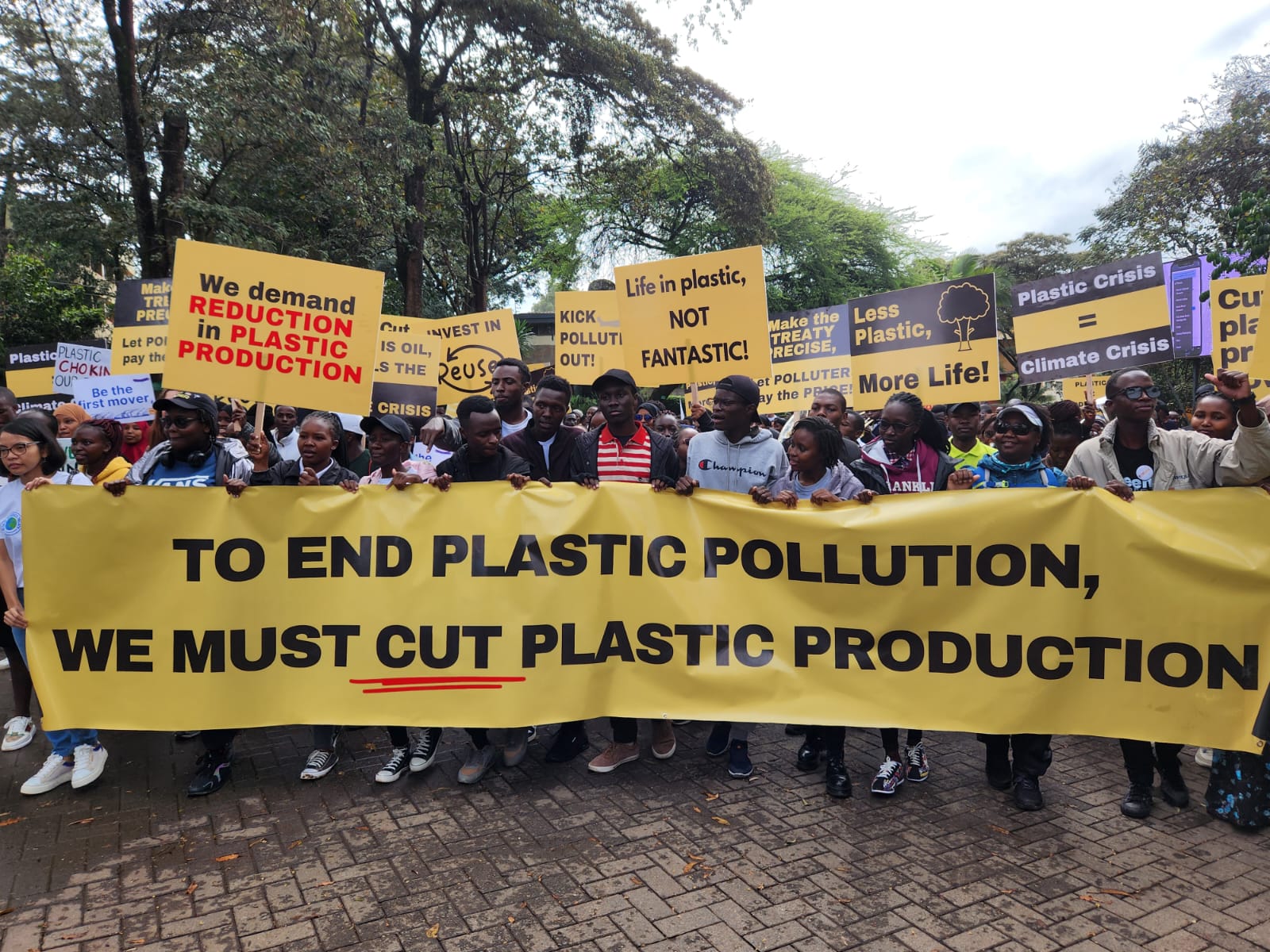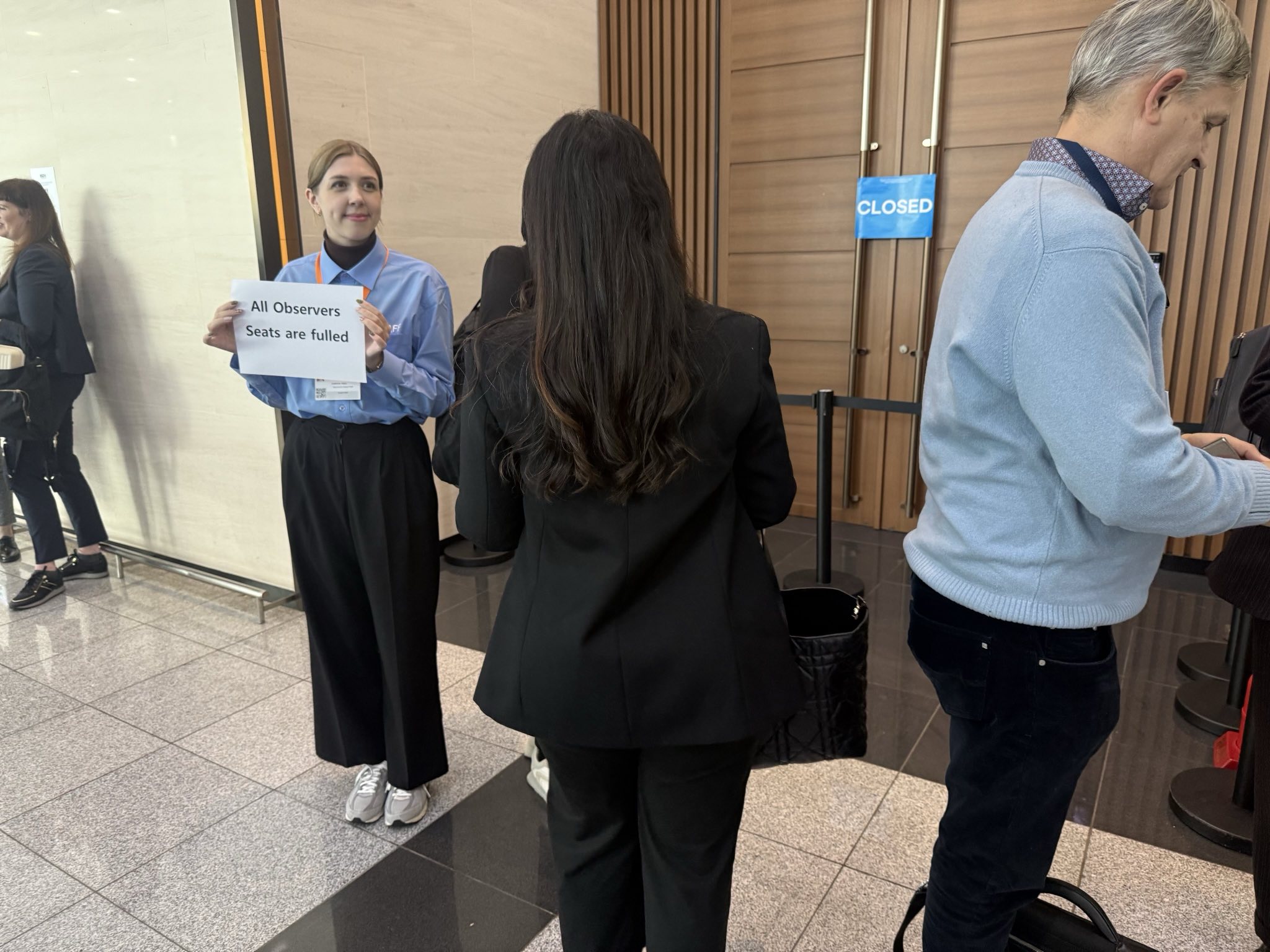BUSAN, Republic of Korea, November 26, 2024 — As members of the Civil Society and Rights Holders Coalition, representing more than 200 organizations, we wish to voice our profound disappointment regarding the inadequate arrangements for the fifth and final session of the Intergovernmental Negotiating Committee (INC-5). These shortcomings severely restrict the ability of observers and Member States alike to meaningfully engage in the negotiation process. It is not the first time this has happened during the INC process.
Nearly 4,000 Member State representatives and Observers, which include civil society representatives, rights holders, and independent scientists, have traveled from across the globe to participate in this pivotal round of negotiations. UNEA resolution 5/14, which created the mandate for these negotiations, acknowledges the critical role that observers play and calls for the “widest possible” participation. With UNEP no longer supporting hybrid participation, it was entirely foreseeable that attendees would expect to be physically present in the rooms where crucial discussions are taking place. Yet, the rooms selected for key contact group (CG) sessions can accommodate a maximum of 60 observers, representing a mere 3% of the UNEP registered observers attending INC-5. This glaring inadequacy in room capacity excludes the vast majority of observers from participating in the negotiation process.
This exclusionary arrangement undermines the principles of transparency and inclusivity that, as the Chair continues to note, are essential components of procedural justice in the negotiations. Observers are not mere spectators; they bring vital lived experiences, technical and traditional knowledge, expertise, and legal insights that strengthen the treaty development process. Moreover, Indigenous Peoples, waste pickers, women, youth, and frontline communities have a right to participate. It is unacceptable that while meeting rooms are crammed, and security limits exit and entry even for bio-breaks, there is ample unused space in the nearby “Blue Zone,” a 10-minute walk away from the main venue. This physical separation reinforces a disrespectful dynamic, likened to relegating vital contributors to a separate, inaccessible space while decision-makers deliberate and make decisions about their futures without their input.
Following similar issues at INC-2 in Paris, it is deeply disappointing that UNEP and the Republic of Korea failed to adequately prepare for this high-stakes session, which has left both Member States and observers deeply frustrated.
To remedy the situation, we call on the INC Secretariat and the Republic of Korea to immediately take the following steps:
1. Merge Rooms Where Feasible: Ensure that rooms with collapsible partitions are consolidated to maximize capacity.
2. Move Larger CGs to Larger Rooms: Prioritize the allocation of adequately sized rooms for CG sessions where critical negotiations are expected.
3. Provide Overflow Options with Live Relay: Implement live streaming into overflow rooms, a solution that has successfully been used in past negotiations.
We would also like to note that the venue’s internet connectivity is poor to non-existent. Again, this has been a persistent issue in the INC process, with challenges in Punta del Este, Paris, and Ottawa.
The INC Secretariat and the Republic of Korea must act swiftly to uphold the accountability, inclusivity, and transparency of this process and ensure meaningful participation from all stakeholders, including civil society and rights holders, for the remainder of INC-5.
###
Cate Bonacini, press@ciel.org, +1-510-520-9109

